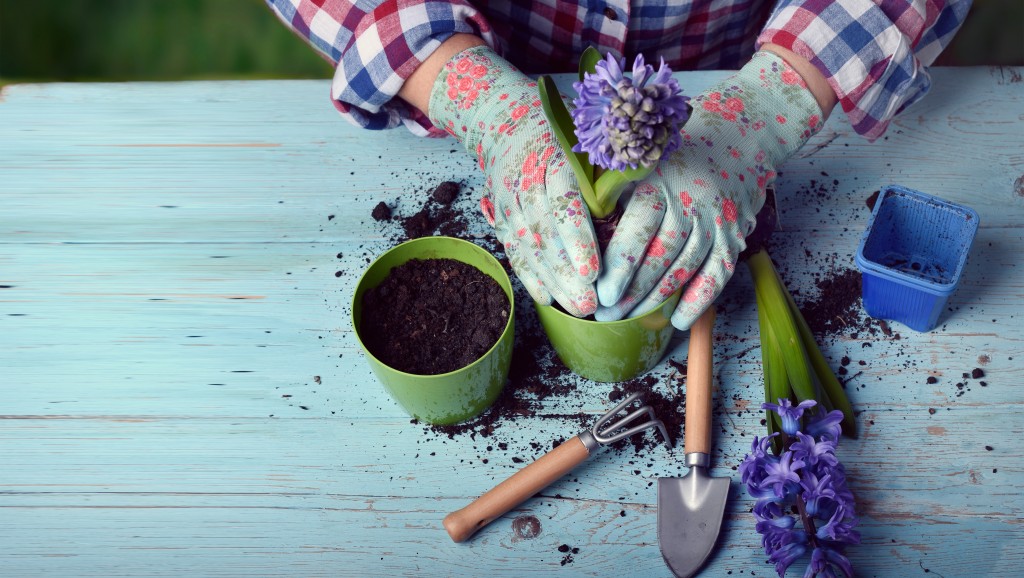A backyard garden is a peaceful oasis for many homeowners. It’s a place to relax, spend time with family and friends, and enjoy the fruits of your labor. But sometimes, having a garden isn’t always easy, especially when uninvited guests decide to make it their home too.
Ants are a common nuisance in gardens as they are attracted to the sweet nectar produced by plants and flowers. While ants may not harm your plants directly, their presence can lead to other problems, such as aphid infestations and plant diseases. Some ant species can also bite or sting, making them a threat to you and your family while you enjoy your garden.
So, it’s crucial to figure out how to deal with ants in a garden but in a way that doesn’t hurt the plants or the other good bugs and animals living there. By doing this, you’re not just keeping your garden safe from infestations but also ensuring it remains a place for all the other plants and creatures.
10 Effective Ways To Get Rid Of Ants In Garden Without Killing Plants
There are plenty of ways to deal with ants in your garden without harming the plants. Here are ten safe and effective methods you can try:
Identify Ant Species
Before you begin the war against ants, know your enemy. Different ant species have different behaviors; some may be good for your garden by pollinating flowers or eating other harmful bugs. You can look up online guides or contact local horticulturists to help identify the ant species in your garden. This way, you can target only the problematic ants without affecting the beneficial ones.

Maintain Garden Cleanliness
A clean garden is less inviting to ants. Ensure there are no food scraps or spills around that might attract them. Regularly clearing away debris, especially around the rows in the garden, can significantly reduce ant attractions. You can trim overgrown vegetation and remove dead plants or leaves that could become ant nesting sites. These simple practices can make a big difference in preventing ants from establishing their colonies in your garden.
Natural Repellents
Nature has its ant-repelling substances. Sprinkle cinnamon, coffee grounds, or citrus peels around your plants and the garden’s boundary to deter ants. These natural repellents are safe for your plants and can provide a pleasant aroma as a bonus. Invest in some essential oils like peppermint, lavender, or eucalyptus, and mix them with water to make a spray. These oils contain strong scents that can repel ants and other insects.
Boiling Water
Although a bit harsh, pouring boiling water on anthills can quickly eliminate an ant colony. Be careful not to run it near your plants, as it can damage them. This method may take a few tries, but it effectively eliminates ants without using chemicals and harming your garden.
Diatomaceous Earth
Diatomaceous earth is a non-toxic powder that dehydrates and kills ants over time. Sprinkle it around your garden, focusing on areas with high ant activity. It’s a slow but effective and eco-friendly option. You can mix it with water and spray it directly on ant trails or nests. These are readily available at any garden center and safe for use around plants and pets.
Boric Acid Bait
Mixing boric acid with sweet baits like jelly can create an effective ant trap. The ants are attracted to the sweet substance, consume the boric acid, and take it back to their colonies, gradually killing off the colony. Ensure to place these baits far from your plants to avoid any contact. Many stores sell pre-made boric acid baits, but you can also make your own at home. You can get the recipes online or seek help from local gardeners.
Ant-Repelling Plants
Plant ant-repelling plants like mint, lavender, or marigolds around your garden. These plants naturally deter ants and attract beneficial insects like bees and butterflies. They also add beauty to your garden and can be used in cooking or making natural insecticides for other pests. You can purchase these plants at a local nursery or grow them from seeds.
Physical Barriers
Creating physical barriers using tape, petroleum jelly, or even sticky substances around your plants’ stems or pots can prevent ants from reaching your plants. These barriers can also help identify ant trails that lead to their colonies, allowing you to target them directly. You can also use copper tape or aluminum foil, as ants are sensitive to electrical currents and avoid crossing these materials.
Homemade Ant Traps
Creating homemade ant traps using non-toxic ingredients like sugar and baking soda can effectively control ants. Place these traps near ant trails but away from your plants. You can browse online for different recipes and try one that works best for your garden. The best part about these traps is that they use ingredients you probably already have in your kitchen. You can check for some quick and easy recipes from blog articles such as BobVila, Good Housekeeping, or The Spruce.
Professional Assistance
If the ant infestation is severe and other methods haven’t worked, it might be time to call in professional pest control services. They can provide practical solutions without harming your plants or the ecosystem in your backyard. Many reputable pest control companies now offer eco-friendly options, so research and choose one that aligns with your values. These services may cost more than DIY methods, but they can save your garden and provide long-term pest control solutions.
Final Thoughts
Finding the right balance between controlling ants and maintaining a healthy garden ecosystem is essential. The methods mentioned above are safe and effective ways to keep ants away without harming plants or other beneficial insects. Regularly monitoring your garden for ant activity can prevent severe infestations. With a little effort, you can enjoy your garden without worrying about pesky ants taking over. So, don’t let ants ruin your backyard oasis. Try out these methods and find what works best for you. Happy gardening!




